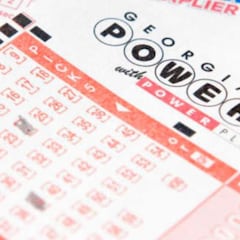Show me the money: How do taxes affect Powerball winnings?
Following a lengthy delay on Saturday night, one lucky ticket holder in Oregon won the $1.33 billion jackpot. They now have the choice of a lifetime to make.


What does one do after winning more than a billion dollars in a lottery? Mansions, yachts, fancy cars, and in general a life of excess are normally the things that we hear first, but what we don’t often hear about is the fact that winners must choose whether to receive a one-time payment or staggered amounts over years and yes, there is a catch.
Death & Taxes: Winning the lottery is a pricy prospect
As we now know, someone in Oregon purchased the winning ticket for Saturday night’s Powerball draw with the winning numbers being 22, 27, 44, 52, 69, and the red Powerball 9. To that end, the first step that said individual will face is to choose - as the organization stipulates - whether they would like to receive an annuity where the jackpot is paid out over a 30-year period or a lump sum of $621.1 million. If you’re wondering, most winners opt for the lump sum, or “cash option” according to lottery officials. An understandable move given that one has no guarantee when it comes to how long we will live.
Related stories
Now, here’s the thing, while the abovementioned $621.1 million is undoubtedly a whole lot of cash and so too is the $1.33 billion if you opt for it, both amounts are subject to a whole lot of tax as well. For context, the top federal tax rate for income over $500,000 is 37%. So, that begins with the moment you as a winner turn in your ticket which then sees Uncle Sam take 24% off the top of your winnings. From there, you’ve then got to pay the 13% difference between 24% and 37% when tax time comes around next year.
BREAKING: A ticket sold in Oregon has won the estimated $1.3 billion Powerball jackpot following a drawing that was delayed by several hours, lottery officials say. The estimated $1.3 billion jackpot is the fourth-largest jackpot in Powerball history. https://t.co/7aWZ8NMEot pic.twitter.com/NuZHHGdq0T
— ABC News (@ABC) April 7, 2024
We imagine you’re probably wondering what that looks like in numbers, so let’s break it down. Assuming you go for the cash option which stands at $621.1 million, you will first pay the aforementioned 24% in tax to the federal government which amounts to $149,064,000, and if you recall next up comes the difference of 13% which in turn amounts to $80,743,000. In the end, after the government has got through with fleecing your total winnings, they stand at $391,293,000 which to be fair isn’t a small payday but significantly lower than what you started with. Yet, believe it or not, you’ve still got more to pay because the state needs to get its take as well. To be clear, most states tax lottery winnings before applying the state tax itself. In the case of Oregon, lottery winnings of $1,500 or more are taxed at 8%, while the state tax stands at 9.9%. What that means, is that when it’s all over your lump sum stands at $280,116,100. While yachts and mansions are likely still possible, it’s clear that winning the lottery is expensive.


Complete your personal details to comment